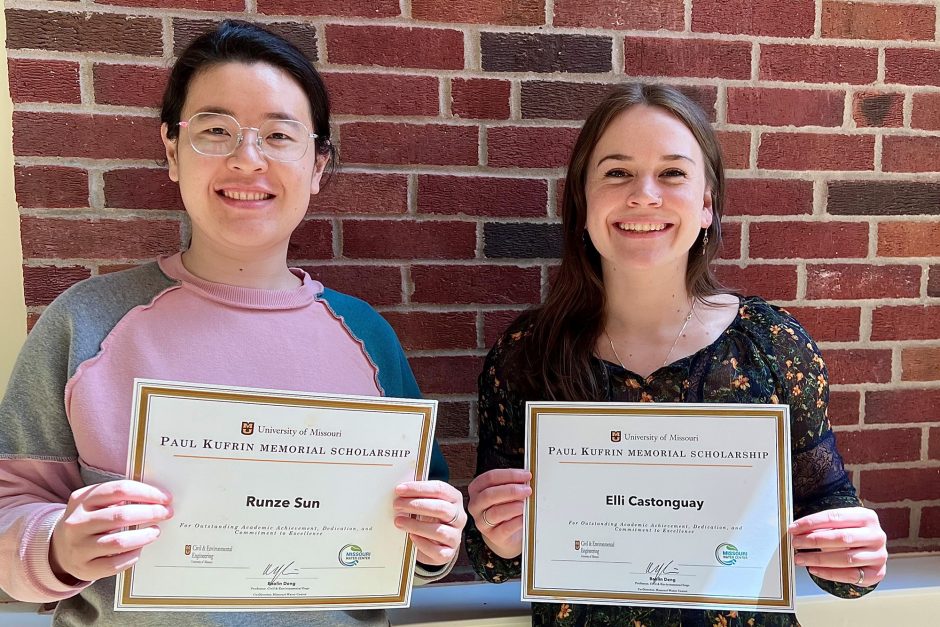By Mary Dillon

June 26, 2024
University of Missouri graduate students are adventurous and inquisitive, driven by the quest to discover the unknown and find solutions to some of the world’s most pressing problems.
Two civil engineering graduate students are diving into the world of clean water. Elli Castonguay, a master’s student, and Runze Sun, a doctoral student, recently received the Paul Kufrin Memorial Scholarship from the Missouri Water Center to continue their research.
Castonguay’s work aims to reduce heavy metal pollution present in water in Joplin, Missouri, using sulfate-reducing bacteria, which are native to the region. The bacteria transform the heavy metals into solid forms which can then be removed, however the ability of bacteria to perform this remediation is limited by the amount of usable carbon available in the system.
“In order to increase the amount of carbon in the water, I’m using brewers’ spent grain, a by-product of beer production, and evaluating its potential to be a food source for the sulfate-reducing bacteria,” Castonguay said. “The idea is to reuse this waste product to promote a more circular economy and provide a sustainable remediation method for communities which have historically been impacted by widespread contamination.”
Sun’s research involves researching the potential of toxic pre- and poly-fluoroalkyls (PFAS), or “forever chemicals,” formed in the drinking water treatment process. Then, she is looking at how to remove them using technology currently in use in drinking water treatment plants.
“PFAS are spread in every corner of our lives,” Sun said. “People know about them because of how hard they are to degrade, how they stay around forever, but there are some methods that can degrade these chemicals — thermal treatments and chemical oxidant treatments — into more toxic compounds.”
Sun says that while the paper is still under revision, preliminary results of her study are promising.
“Our test is also able to detect which type of toxic compound is generated through the degradation process as well as how many were generated,” Sun said.
Read more from the College of Engineering


